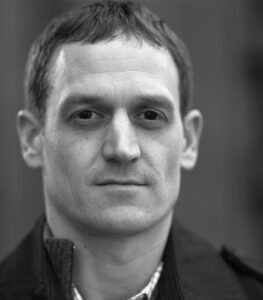In early February, Mahdi Al-Mashat, the youthful 35-year-old Houthi president, called a private meeting of senior government officials in Sana’a. Al-Mashat, who became head of the Houthi-run Supreme Political Council in April 2018, wanted to dispel a rumor that had been gaining traction in recent months. Some on social media and in qat chews around the city were suggesting Al-Mashat was little more than a figurehead. “That’s bullshit,” Al-Mashat said, according to a source aware of the proceedings who spoke to the Sana’a Center on condition of anonymity. The president glanced across the room at his 49-year-old office director and the subject of the rumors, Ahmad Hamed. “Ahmad is a dear brother,” Al-Mashat informed the room. “No decision is taken by him until there have been intensive consultations.”
Few in the room believed what Al-Mashat was saying. Al-Mashat is the official head of the Houthi government, the president, or al-ra‘is in Arabic. But in Sana’a, Hamed, a slightly overweight, slightly balding figure, is known as ra‘is al-ra‘is, the president of the president. The most recent report from the UN’s Panel of Experts on Yemen describes him as “possibly the most powerful Houthi civilian leader not bearing the name Al-Houthi.”
Much of Hamed’s power is the result of his long and close relationship to Abdelmalek al-Houthi, the head of the Houthi movement. Like Abdelmalek’s brother and the founder of the Houthi movement, the late Hussein Badr al-Din al-Houthi, Hamed was born in the village of Marran in 1972.
Hamed was one of Hussein’s earliest and most devoted followers, but he also spent significant time with another follower and childhood friend, Hussein’s younger half-brother Abdelmalek. During the first Houthi war, in 2004, Hamed spent weeks besieged in a cave with Abdelmalek in the rugged mountains of Sa’ada. That war ended in September 2004, when Hussein al-Houthi was killed by government fighters.
At the time, it looked as though the Houthi movement might die out with Hussein. Abdullah al-Razzami, a tribal leader and former member of parliament who had been close to Hussein, made a play to take over what his friend had built. But Hamed and a few others lobbied for Abdelmalek to succeed his late brother, arguing that the movement needed a sayyid, or descendent of the Prophet Mohammed, as its leader. Eventually, Al-Razzami’s takeover bid was beaten back, and Hussein’s father, Badr al-Din al-Houthi, took temporary control of the movement until leadership passed to Abdelmalek in 2010.
Abdelmalek never forgot Hamed’s early support. The two were often together during the six successive Houthi wars from 2004-2010, deepening their childhood bond. When the Houthis took control of Sana’a in late 2014, Hamed was placed in charge of the group’s media, a role he eventually turned into a position as the Houthi Minister of Information. But like Abdelmalek himself, Hamed now functions outside contemporary governing structures. Abdelmalek, of course, remains at an undisclosed location in northern Yemen, but Hamed is his man in Sana’a.
Initially, the Houthis governed Sana’a and the north in partnership with their one-time enemy, former President Ali Abdullah Saleh. Together, the Houthis and Saleh formed the Supreme Political Council (SPC) in July 2016, a grouping of 10 individuals – five nominated by the Houthis and five by Saleh – that would rule. But the alliance, which was largely one of convenience and common enemies, was doomed from the start. There was simply too much blood between the two sides. After all, it was Saleh’s troops that had killed Hussein in 2004.
In December 2017, the two sides fell out and Saleh was killed, some say executed, by the Houthis. With Saleh gone, the Houthis were able to further cement their control over Sana’a and the government in the north. That meant the Houthi head of the SPC, Saleh al-Sammad, was now president and unopposed by Saleh’s hand-picked figures on the council.
In January 2018, immediately after Saleh’s death, Abdelmalek installed Hamed as Al-Sammad’s office director. When Al-Sammad was killed in an airstrike a few months later, Hamed stayed on as office director to the new president, Mahdi Al-Mashat. Hamed’s presence as office director provided Abdelmalek with a potential check on the president should he grow too strong, and Hamed has used that authority to increase his own power in Sana’a, even coming into conflict with members of the Al-Houthi family.
The Houthi takeover of governance in the north has proceeded in stages. Initially, the Houthis focused on the heads of government ministries, replacing ministers and top officials with Houthi loyalists, but leaving much of the bureaucracy in place. Later, amid growing concerns over the loyalty of much of the Saleh-era bureaucracy, the Houthis implemented a “supervisor” system, installing trusted Houthi figures in most departments. These mushrifin (supervisors) are not officially part of the government bureaucracy but they determine what a ministry can and cannot do, effectively steering each department. Hamed, along with another top Houthi official, Mohammed al-Houthi, has been instrumental in appointing many of these supervisors and, in the world of Houthi politics where informal relationships matter more than official titles, many of them report back to, and take direction from, Hamed.
But Hamed’s biggest – and most controversial – moves have been on the financial front. Hamed diverted funds from the accounts of both the Youth Welfare Fund, a fund within the Ministry of Youth and Sports, and that of the General Insurance and Pensions Authority, according to a former official with one of the funds and a parliamentary official aware of the transactions. In May 2018, he transferred the Zakat Authority, which collects the alms tax in areas under Houthi control, to his office, according to the same sources. A few months later, he tried to take over the account of the Ministry of Religious Endowments and Guidance, which also brings in significant revenue. Hamed was unable to take direct control of the ministry’s accounts, so the parliamentary source said he eventually created a parallel department – known as the General Authority of Endowments – and then linked the department to the presidential office, giving him backdoor access.
Outside of Yemen, Hamed is best known for control over the Supreme Council for Management and Coordination of Humanitarian Affairs and International Cooperation (SCMCHA), and its similarly wordy predecessor, NAMCHA. Hamed is chairman of the board for SCMCHA, which oversees the import and distribution of all humanitarian aid into Houthi-controlled territory. “Not even a simple project can be carried out in northern Yemen without the consent and supervision of this body,” a Yemeni head of a local aid organization told The Associated Press.
Hamed did not respond to a Sana’a Center interview request sent to SCMCHA.
In many ways, Hamed has, through SCMCHA, weaponized food aid in Houthi controlled territory, using it as a tool to reward allies and punish opponents. SCMCHA’s board includes the head of the Houthi intelligence apparatus, which as the UN Panel of Experts dryly notes, is “an unlikely candidate for an entity devoted to coordinating humanitarian and development assistance.” Hamed’s position atop SCMCHA allows him to directly influence all aid flowing into northern Yemen, which is the most populous area with the greatest amount of need in a country the UN calls the world’s worst humanitarian crisis.
An AP investigation in 2020 showed that for a time three different UN agencies were paying monthly salaries totalling $10,000 to the top officials in SCMCHA, which presumably included Hamed. “The U.N. refugee agency also gave SCMCHA $1 million every three months for office rental and administrative costs, while the U.N. migration agency gave the office another $200,000 for furniture and fiber optics.”
At one point, in 2019, Hamed proposed that SCMCHA would be funded by a 2 percent tax – based on operating budgets – of each humanitarian organization operating in Houthi-controlled territory. The UN and the international community pushed against the obvious shakedown attempt, and in March 2020 the US pulled humanitarian funding from Houthi-controlled areas, citing concerns that the Houthis were manipulating aid to fund their war efforts.
The World Food Programme (WFP) has accused SCMCHA of diverting and selling aid worth millions of dollars. The Houthi leadership responded with counter-accusations, claiming that WFP was corrupt and often sent expired food to Yemen. The Houthis later said they ordered a number of internal investigations, although none of the results have been made public. Through it all, Abdelmalek has continued to back and support Hamed. In a 2019 interview, in the midst of the debate over Houthi aid diversion, Abdelmalek stressed that all international aid needed to be coordinated through SCMCHA, demonstrating his support for a process in which precious food baskets and other aid resources go exactly where Hamed wants them to go.
For the UN Panel of Experts, there is little doubt that Hamed is calling the shots. The Panel’s latest report states that Hamed is directly responsible for SCMCHA’s activities “when it impedes the flow of humanitarian assistance and obstructs humanitarian movements.”
Only a few people in Sana’a have attempted to challenge Hamed. At least three Houthi-appointed ministers – health, tourism and water – resigned after public clashes with Hamed since 2018. Another official, who publicly criticized Hamed, had his house seized and a relative detained. Hamed has frozen the bank accounts of other domestic rivals, and the UN Panel believes he heads one of the three competing power bases within the Houthi movement. The other two, according to the UN Panel, are headed by Mohammed al-Houthi, the head of the Supreme Revolutionary Committee, and Abdelkarim al-Houthi, the Minister of the Interior.
Hamed’s influence has only grown since Al-Mashat became president in 2018. One source in Sana’a told the Sana’a Center that Al-Mashat is uninvolved in the bureaucratic paperwork of his office, allowing Hamed, who is a reputed workaholic, to acquire even more power. At the meeting in February, Mashat told the roomful of senior officials that he and Hamed made decisions together. “Both of us, regardless of our positions, are acting on the orders of the sayyed,” he said, referring to Abdelmalek by his honorific title.
Across the room, Hamed nodded and smiled.
This commentary first appeared in A Decade After the Uprising – The Yemen Review, March-April 2021
The Sana’a Center for Strategic Studies is an independent think-tank that seeks to foster change through knowledge production with a focus on Yemen and the surrounding region. The Center’s publications and programs, offered in both Arabic and English, cover diplomatic, political, social, economic, military, security, humanitarian and human rights related developments, aiming to impact policy locally, regionally, and internationally.

 اقرأ المحتوى باللغة العربية
اقرأ المحتوى باللغة العربية
